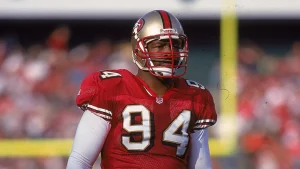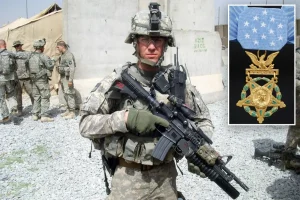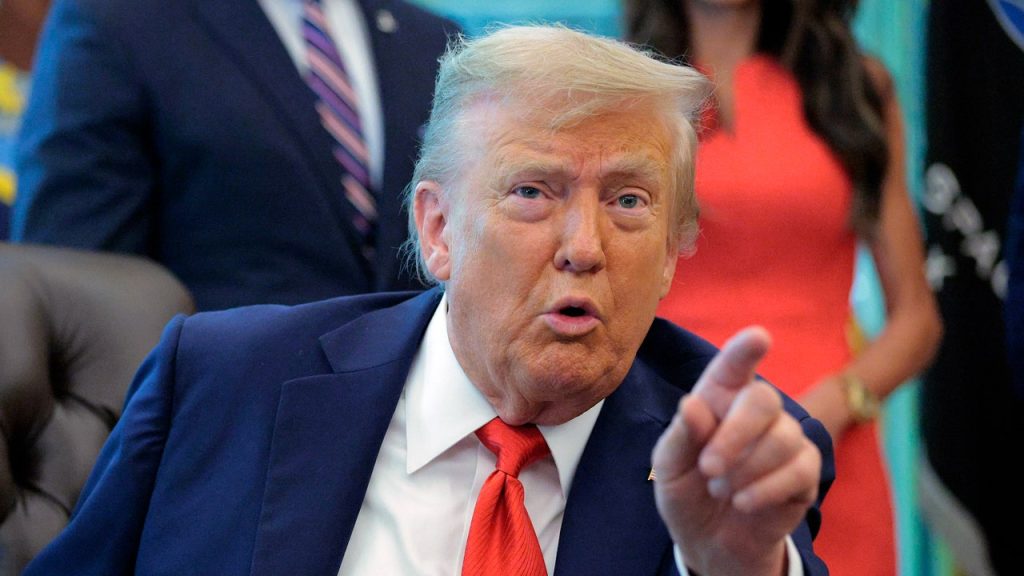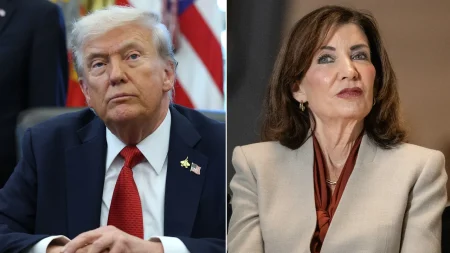Trump’s Provocative Chicago Meme Sparks Political Firestorm
In a bold social media move that has ignited fierce debate, President Donald Trump posted a provocative meme depicting himself as a military commander preparing to wage war on Chicago. The image, styled after Robert Duvall’s character from the Vietnam War epic “Apocalypse Now,” shows Trump in military fatigues against a backdrop of helicopters flying over a fiery Chicago skyline with the caption “Chipocalypse Now.” The post included the messages “I love the smell of deportations in the morning…” and “Chicago is about to find out why it’s called the Department of WAR,” accompanied by helicopter emojis. This confrontational post came just one day after Trump signed an executive order changing the Defense Department’s name to the Department of War, signaling his administration’s hardening stance on domestic issues like immigration and urban crime.
The provocative meme appears strategically designed to antagonize Illinois Governor JB Pritzker and Chicago Mayor Brandon Johnson, both of whom have vehemently opposed Trump’s previous threats to deploy the National Guard in Chicago. The President has repeatedly suggested using federal troops to address crime in the city and enhance immigration enforcement efforts, creating significant tension between federal and local authorities. The image evokes the character of Lt. Col. Bill Kilgore from “Apocalypse Now,” a fearless air cavalry officer who leads helicopter assaults on Vietnamese villages—a militaristic comparison that many critics found deeply troubling when applied to an American city. The post represents one of Trump’s most explicit hints yet about potentially deploying federal troops to Chicago, escalating the rhetoric beyond previous statements.
The response from Illinois officials was swift and forceful. Governor Pritzker immediately condemned the post, writing, “The President of the United States is threatening to go to war with an American city. This is not a joke. This is not normal. Donald Trump isn’t a strongman, he’s a scared man. Illinois won’t be intimidated by a wannabe dictator.” Chicago Mayor Brandon Johnson echoed these sentiments, stating, “The President’s threats are beneath the honor of our nation, but the reality is that he wants to occupy our city and break our Constitution. We must defend our democracy from this authoritarianism by protecting each other and protecting Chicago from Donald Trump.” Senator Dick Durbin of Illinois also joined the chorus of criticism, calling the tweet “disgusting” and “an embarrassment” during remarks at a parade in Chicago’s Pilsen neighborhood.
The legal and practical implications of deploying federal troops to Chicago remain complex. National Guard units sent without state approval typically face significant restrictions, generally limited to defending federal property and personnel. Recent precedents include deployments to Los Angeles during anti-Immigration and Customs Enforcement protests, where troops were confined to federal buildings and escort duties for immigration agents. Washington, D.C., presents a different case as it falls under federal jurisdiction, allowing Guard units to conduct armed patrols alongside local police. The constitutional and jurisdictional questions surrounding potential federal military intervention in Chicago have become a flashpoint in the broader national debate about federalism, local control, and the appropriate use of military forces in domestic contexts.
Trump’s focus on Chicago stems from the city’s persistent challenges with violent crime, though recent data shows a mixed picture. Chicago recorded 573 homicides in 2024, marking its 13th consecutive year leading the nation in total murders, according to Chicago Police Department data compiled by Wirepoints. However, the Council on Criminal Justice’s year-end update revealed some improvements: aggravated assaults declined by 4% compared to 2023 (though still 4% higher than 2019 levels), gun assaults fell by 15% (but remained 5% above 2019), and carjackings dropped significantly by 32% year-over-year (though still 25% higher than pre-pandemic numbers). These statistics illustrate a city making progress on crime reduction but still facing substantial challenges—a nuanced reality that contrasts with the stark, militaristic imagery employed in Trump’s social media post.
This confrontation highlights the deepening polarization in American politics and raises profound questions about the boundaries of presidential authority, the relationship between federal and local governments, and the appropriate tone for national discourse. Trump’s “Chipocalypse Now” post, with its deliberate military imagery directed at an American city, has transformed what might have been a policy disagreement about crime prevention and immigration enforcement into a heated constitutional and ethical debate. As the controversy unfolds, it underscores the powerful role social media plays in modern political communication and how provocative messaging can instantly escalate tensions between different levels of government. For Chicago residents caught in the middle of this political firestorm, the real concerns about both crime and potential federal intervention remain, even as their city becomes a symbolic battleground in a larger national conflict about America’s future direction and governance.















